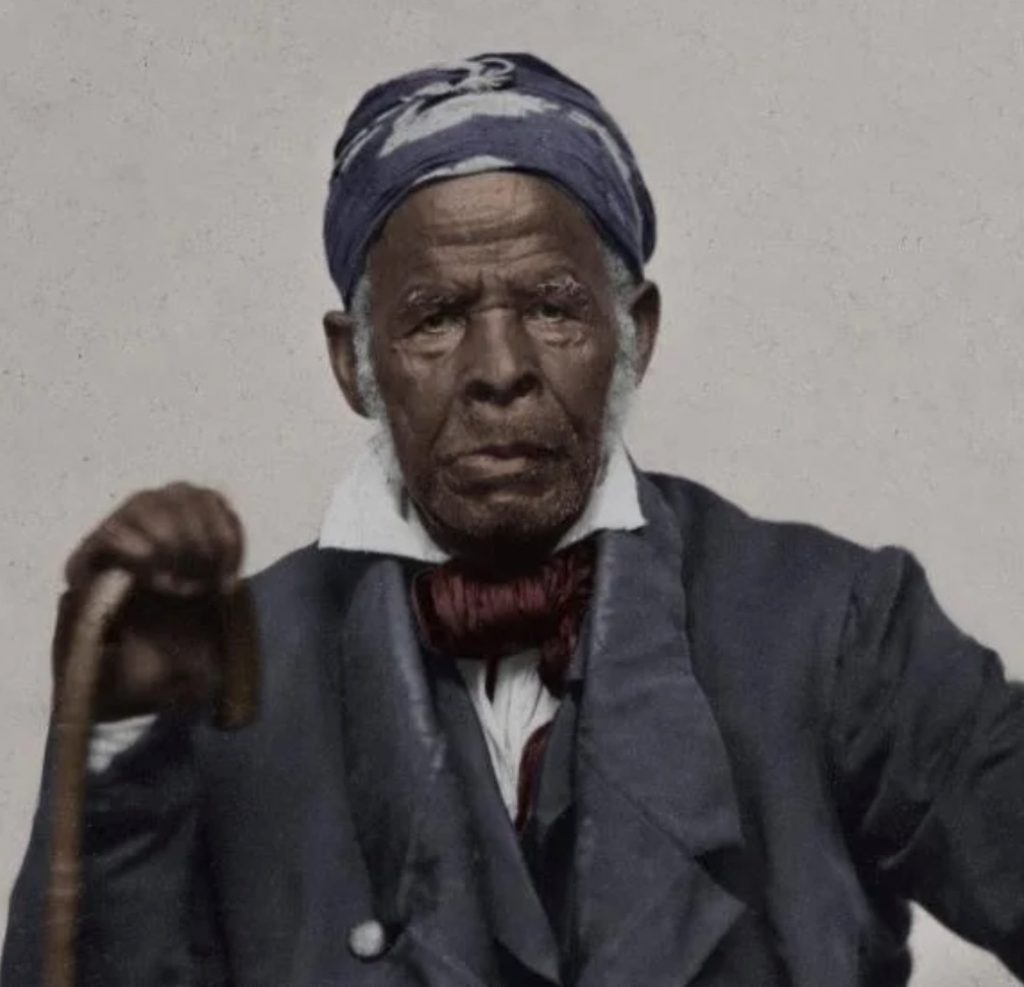by Mike Telin

The document that Giddens is referring to is the 1831 autobiography of Omar ibn Said, the only known autobiography written by an enslaved person during their enslavement, and the only document written in Arabic by an enslaved person.
During that same interview, composer Michael Ables noted that the document was written at a time when it was illegal to teach enslaved people to read and write. “And why is that? Because they knew that knowledge is power, and Omar’s power to speak to us today is expressed through the fact that he was educated.”
Said’s autobiography became the source material for Rhiannon Giddens’ and Michael Ables’ opera Omar. The opera premiered on May 27, 2022 at the Spoleto Festival USA in Charleston, South Carolina and earned Giddens — an Oberlin Alum and MacArthur Fellow — and Ables a Pulitzer Prize for Music in 2023. (Visit the Opera’s website)
On Friday, December 6 at 7:30 pm in Oberlin’s Finney Chapel and Sunday, December 8 at 7:00 pm at the Maltz Performing Arts Center in Cleveland, conductor John Kennedy will lead concert performances of the award-winning opera. The production features soprano Rhiannon Giddens, mezzo-soprano Krysty Swann, tenors Limmie Pulliam and Daniel McGrew, baritone Michael Preacely, and bass-baritone Daniel Okulitch along with the Oberlin Orchestra and choral ensembles.
Although the performances are sold out, both will be livestreamed. Click here for December 6 and here to register for December 8.
In an interview with Stephanie Manning for the Oberlin Conservatory website, John Kennedy, who also conducted the Spoleto premiere, said: “I think that [Giddens and Ables] have accomplished something remarkable in fusing the African American musical traditions that are so important to Rhiannon’s aesthetic with the idiom of opera. To me, they’re expanding what we might consider to be classical cultural traditions.”
Kennedy had high praise for Giddens’ gift for writing arias, calling Omar’s “one of the great arias of the last hundred years.” He also complimented Abels’ on his ability to draw different sounds from the orchestra. “There’s no banjo. There’s no kora [an African instrument which resembles both a harp and a lute in sound]. And yet the orchestra sometimes is able to evoke one in a fantastic way.”
Omar at Oberlin Friday,
December 6
7:30 pm
Finney Chapel
Omar at the Maltz
Sunday, December 8
7:00 pm
Maltz Center for the Performing Arts
Pre-concert discussion (6:00 pm): Narratives of enslaved individuals led by Oberlin College faculty members
Post-concert talkback: moderated talkback with performers on the creative process
Related Events: Omar at Oberlin
West African Music Lecture-Demonstration
Thursday, December 5
4:30 pm to 6:00 pm
Cat in the Cream Coffeehouse
Thursday, December 5
7:30 pm to 11:00 pm
West Gym, Jesse Philips Physical Education Center
Roundtable Discussion: Narratives of Enslaved Individuals
Saturday, December 7
10:00 am to 11:30 am
Nancy Schrom Dye Lecture Hall
Saturday, December 7
11:00 am to 12:00 pm & 1:00 pm to 2:00 pm
Allen Memorial Art Museum
Panel Discussion: “Expressions of Identity in the Music of Omar”
Saturday, December 7
1:30 pm to 2:30 pm
Nancy Schrom Dye Lecture Hall
Panel Discussion: Performance Practices for Black Productions
Saturday, December 7
3:00 pm to 4:30 pm
Nancy Schrom Dye Lecture Hall
Oberlin Artist Recital Series presents Seckou Keita
Saturday, December 7
7:30 pm
Finney Chapel (Read a preview article)
Published on ClevelandClassical.com November 26, 2024.
Click here for a printable copy of this article
Return to the Front Page.


